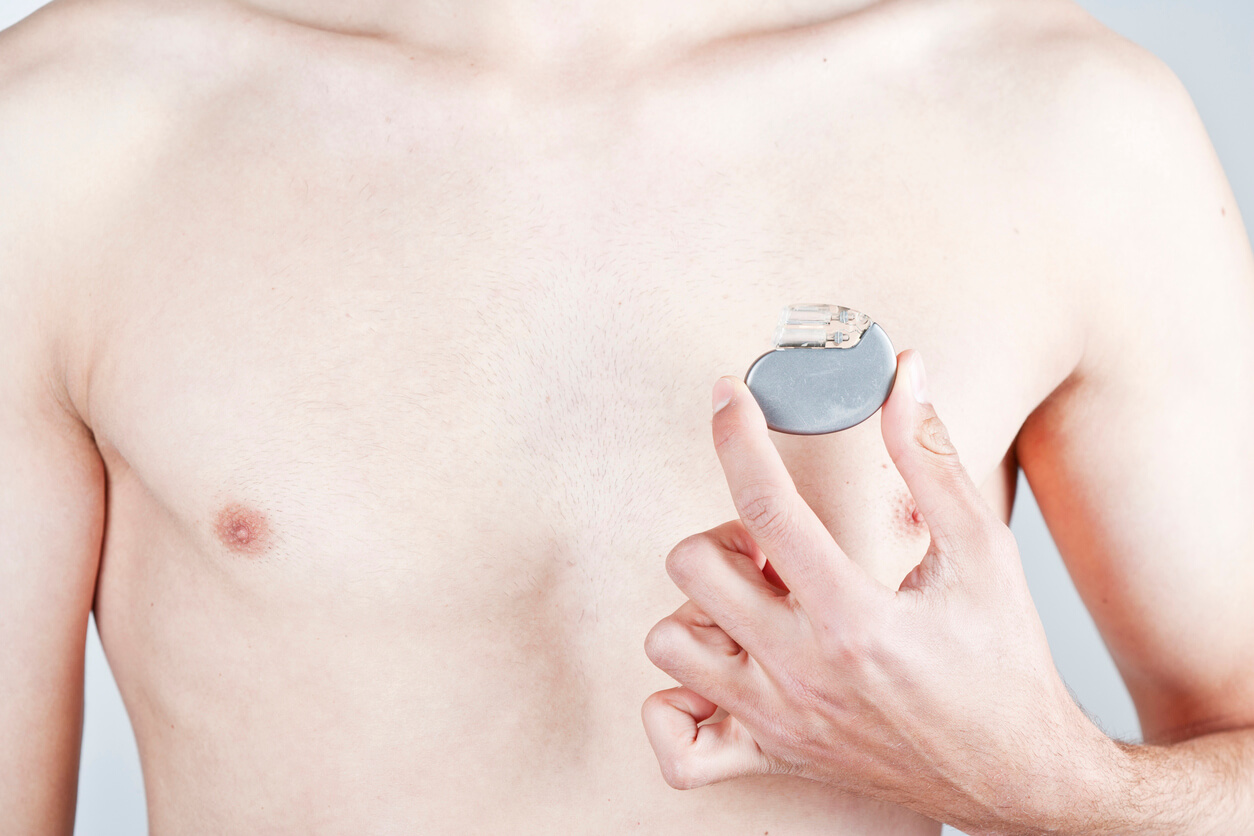A pacemaker is an electronic device that corrects a slow heartbeat. If you’ve been recommended one, chances are you are thinking about billions of questions such as how life will be after the procedure, where the implant is placed, etc. In this post, Dr. Sanjay Kumar who is also one of the best doctors for Packemaker in Faridabad has answered some of the most critical questions. This information is useful for people with heart problems. If you are still unsure, you should talk to your primary doctor.
Lets get started:
1. Where is a pacemaker implanted?
In the past, pacemakers were the size of a matchbox, but new designs have made them much smaller and sleeker. Pacemakers are attached to the heart via leads (or wires). A doctor implants the pacemaker under your skin below your collar bone using a small incision. Meanwhile, the wires are inserted into a blood vessel near your collarbone and connected to the pacemaker. Once your doctor has closed the incision, the procedure is complete. Thanks to the local anesthesia, Dr. Sanjay Kumar, the best pacemaker doctor in Faridabad, says you won’t feel anything during the procedure. This will help you relax.
2. Can I travel after my procedure?
According to the best pacemaker doctor in India, you can travel one week after the procedure unless it has been specifically forbidden. Therefore, you must have a pacemaker id with your doctor’s contact information and pacemaker details.
It is best to inform the airport security personnel of your condition and that you have a pacemaker. Make sure to take your medications while away.
3. What precautions should I take after the pacemaker is implanted?
Most electrical and electronic appliances will not be affected by pacemakers. However, manufacturers advise caution when dealing with pacemakers. One of the precautions is not to place your cell phone within 6 inches of your pacemaker.
Additionally, the best cardiologist in India recommends not keeping your device in your breast pocket. Other devices that create a magnetic field or are battery operated must be kept at least six inches away from the magnetic field.
The movement of the arm on the side where the pacemaker is implanted is restricted for 7 days
after the implant. Stabilizing the pacemaker leads in the heart is a precaution.
4. Does my pacemaker work properly?
It does’nt seem to be working. After you have been discharged from the hospital, ask your doctor about your minimal heart rate. Check your pulse if you have doubt about the pacemaker. Furthermore, if you feel dizzy or lightheaded, it could mean there is something wrong. In such a situation, you should speak with your doctor right away. The best pacemaker doctor in India says most modern pacemakers can be checked remotely, and in-person check-ups are only required occasionally.
The latest pacemakers are equipped with Bluetooth technology that syncs to smartphones, so remote monitoring is possible.
5. Can I expect any immediate complications after pacemaker implantation?
Pacemakers do not have many complications and side effects. Contact your doctor as soon as possible if you observe any of the following symptoms:
• Excessive fatigue or shortness of breath
• The location where the incision was made shows signs of infection (oozing, discharge)
• Swelling or redness around the incision
• Fever
• An abnormal heartbeat
6. When should I consult a doctor about my pacemaker?
It is necessary to have your pacemaker checked every six months by a doctor. This is called programming your pacemaker, where the doctor checks the pacemaker is working as it should.
Here’s the wrap on the questions answered by the best doctors for Packemaker in Faridabad – Dr. Sanjay Kumar.

